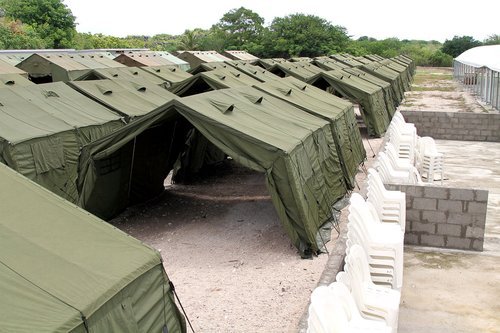The Albanese government has made a significant breakthrough in its efforts to manage the NZYQ cohort, a group of immigrants who have broken Australian laws.
A new deal with the Pacific island nation of Nauru will see three members of this cohort resettled, effectively ending their time on Australian bridging visas.
What Does This Deal Mean?
The agreement, announced by Immigration Minister Tony Burke, is a major development in the government’s attempts to find a solution for the NZYQ cohort.
These individuals, who include murderers, sex offenders, and perpetrators of domestic violence, had previously been released from detention following a High Court ruling.

However, their release was conditional on them adhering to strict monitoring measures, including wearing ankle bracelets and following curfews.
A New Chapter for the NZYQ Cohort
The three individuals who will be resettled in Nauru had previously been taken back into immigration detention by the Australian Border Force after being issued with long-term resettlement visas.
This move is expected to face legal challenges, but the government is hopeful that it will pave the way for a more permanent solution for the remaining members of the NZYQ cohort.
Background: The NZYQ Cohort and the High Court Ruling
The NZYQ cohort consists of 215 foreign offenders who were held in detention until a landmark High Court decision in 2023 ruled that indefinite detention was illegal for those who had no real prospect of deportation from Australia.
The cohort includes some serious offenders, with 12 murderers or attempted murderers, 66 sex offenders, and 15 domestic violence perpetrators among their number.
Challenges Ahead
The deal with Nauru is not without its challenges. At least 28 former immigration detainees have been charged with federal offences since being reissued with bridging visas in 2024.
The government has also faced criticism over its handling of the NZYQ cohort, particularly in the wake of a High Court decision in November 2024 that ruled against laws requiring former immigration detainees to adhere to monitoring measures.
What’s Next?
As the Albanese government continues to navigate the complex issue of managing the NZYQ cohort, it remains to be seen how this deal with Nauru will play out.
With potential legal challenges on the horizon, the government will need to be prepared to defend its decision to resettle these individuals in Nauru.
One thing is certain, however: this deal marks a significant step forward in finding a solution for the NZYQ cohort, and it will be closely watched by Australians and the international community alike.

